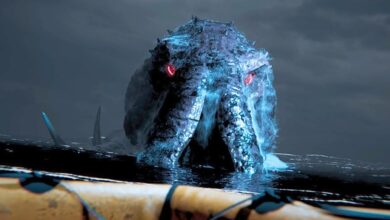Scientists JUST SOLVED Mystery Why Orcas Are A.t.t.a.c.k.i.n.g Boats

Since 2020, boats sailing off the Iberian Peninsula (including France, Spain, Portugal, and Morocco) have been repeatedly attacked by killer whales (orca). What started as a few random incidents has now resulted in at least 673 attacks recorded between 2020 and 2024. The whales have mostly targeted small sailing vessels, no longer than 29 feet (about 8-9 meters). While these attacks were initially unexpected, they have become increasingly deliberate, and it appears that a specific group of killer whales (or “pod”) has been actively seeking out boats to attack, especially on vital parts like rudders.
A notable incident occurred on October 31, 2023, when a group of whales attacked a Polish tourist boat in the Strait of Gibraltar. The attack lasted 45 minutes, and the crew tried to flee from the whales, but they continued to attack the boat’s rudder. In another case, a catamaran had its rudder ripped off by the whales, which they then played with in their mouths. This behavior has caused sailors and boat owners to fear that such attacks could cause serious accidents or even death.
### Initial guesses and theories about the cause
As the attacks have increased, many have begun to speculate about the cause behind this behavior. Some have suggested that killer whales may be seeking revenge for past atrocities committed against them by humans, such as whaling for oil or capturing them. These killings were rampant in the 19th and 20th centuries, when killer whales were hunted by fishermen as “enemies” in competition for resources. These speculations were largely based on the idea that whales could harbor long-standing resentment.

Another theory is that killer whales may have difficulty finding food and view boats as “competitors” for their food source. There are also theories that whales may be attacking human wealth, especially luxury yachts. However, these theories were gradually disproved when scientists began to investigate.
### Scientific investigation and important findings
In order to address this situation, the governments of Spain and Portugal organized a scientific investigation. Marine biologists, oceanographers and authorities have teamed up to study the behavior of this group of killer whales. Interestingly, they found that no other group of killer whales in the world has attacked boats to the same extent.
After investigating, scientists discovered that this behavior may not be a vengeful attack or a fight for food, but a game. It is possible that a young whale accidentally hit the rudder while playing with the flow of the boat’s propeller, a phenomenon known as **”prop watching”**. When the rudder was hit, the whale may have felt “enjoyed” the behavior and this led to a phenomenon that spread among the whales. Indeed, some other whales in the group imitated this behavior and started hitting the rudder of the boat over and over again.
Researchers also point out that this group of killer whales is quite healthy and does not have a hard time finding food. This means that they do not have to work hard to find food, so they have more free time to “play” or develop other social behaviors. This behavior is like a fad or trend, like the “salmon hat” fad that emerged among a group of killer whales in Puget Sound in 1987, when a female whale swam around with a dead salmon on her head, and the behavior was then copied by other whales in the group.
### Impact and solutions
Although scientists have determined that this is not an aggressive behavior, for boat owners, this behavior is still a big problem. It causes serious damage to boats, especially those with weak rudders. One of the measures that scientists have proposed is to change the design of rudders and propellers, making them less attractive to whales. An experimental method has been applied, making propellers and rudders more “rough”, hoping to reduce the whales’ curiosity. However, this measure cannot completely solve the problem because it is not always effective.
Scientists also recommend that sailors when going to sea should avoid areas with high density of killer whales, and if they detect whales, they should move away from that area as quickly as possible. They also emphasize that making loud noises to scare whales away can make them see it as part of the game and make the situation worse.
While there is no perfect solution to stop the behavior completely, scientists believe that it will gradually decrease over time. Attacks are already less frequent than they used to be, and it is possible that the behavior will naturally disappear like other strange trends in the animal kingdom.









